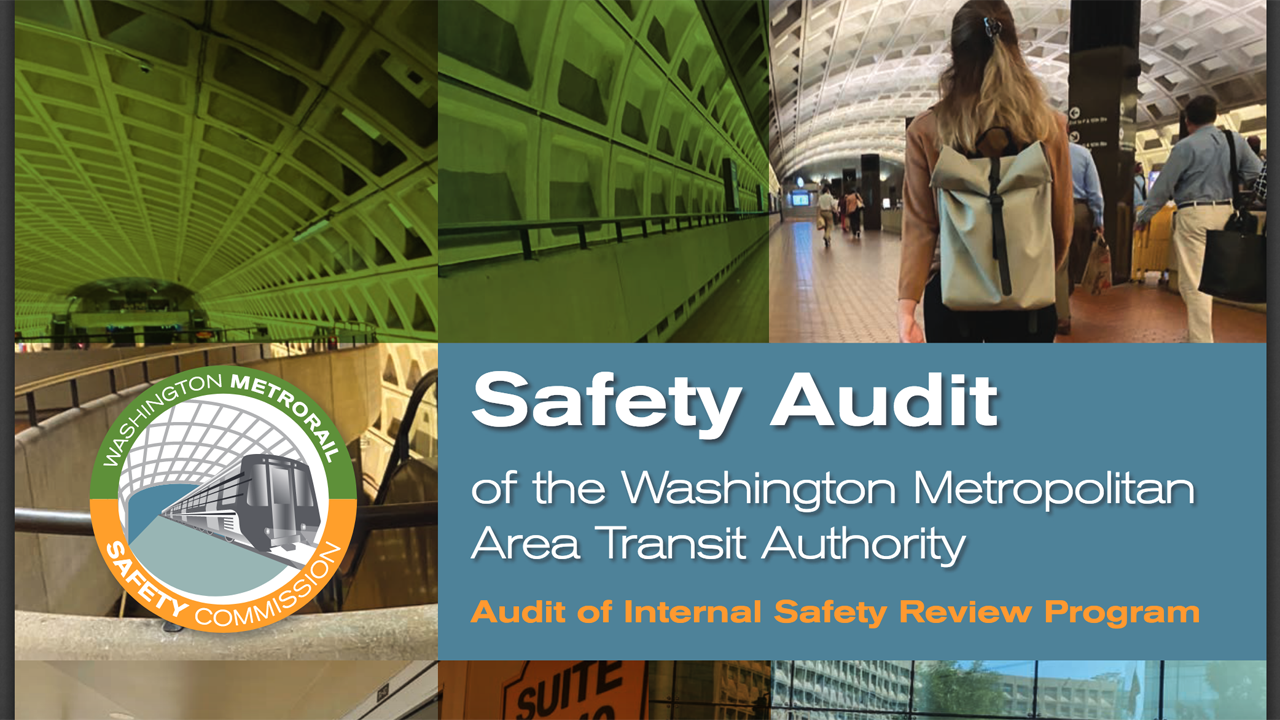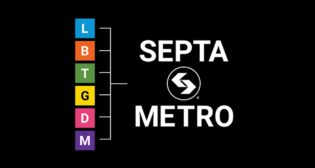
Audit Released on WMATA’s Internal Safety Review Program
Written by Marybeth Luczak, Executive Editor
The Washington Metrorail Safety Commission (WMSC) on Jan. 4 issued a safety audit of Washington Metropolitan Area Transit Authority’s Internal Safety Review Program, which it said identified “positive practices” and three findings the transit authority must address.
Internal safety reviews are required by federal regulation and the WMSC Program Standard, according to WMSC. They are designed to further “continuous safety improvement” from within a transit agency.
The scope of the safety audit is Washington Metropolitan Area Transit Authority’s Internal Safety Review Program for Metrorail, its rapid transit service, and related corrective action plans. The safety audit objectives, WMSC reported, included “the assessment of audit practices and procedures, and associated training, for purposes of compliance with applicable Metrorail plans and policies, regulations and industry best practices”
According to WMSC, its audit “identified positive practices” that contribute to safety improvement at Washington Metropolitan Area Transit Authority. “Metrorail’s internal safety reviews effectively identify safety issues in Metrorail processes, procedures, implementation and training,” WMSC said.
Among the positive practices are:
- “Metrorail’s internal safety reviews effectively identify safety issues that must be addressed.
- “Internal safety reviews are conducted by a department outside of the reporting structure for operational departments.”
- The Quality Assurance, Internal Compliance and Oversight (QICO) department “utilizes subject matter experts as part of internal safety review teams and to review iCAPA deliverables and closure requests.”
- “QICO typically holds individual briefings regarding the findings of each internal safety review with the relevant senior vice president(s) responsible for that area.”
- “iCAPA deliverables and other items are tracked on schedules for each responsible department. These have continued to be distributed, even if on a reduced frequency, during reduced staffing within QICO.”
- “QICO tracks completion dates for iCAPAs that were initially committed to in addition to the current expected completion dates for any iCAPAs that are past due.”
- “QICO has an assigned safety risk coordinator.”
- “Required documentation on completed annual internal safety reviews is submitted to the WMSC.”
- “QICO has detailed training matrices listing and tracking training requirements for personnel. …”
The safety audit also identified three findings that Metrorail is required to develop corrective action plans to address:
- “Findings from the internal safety review program are not yet systematically incorporated into Metrorail’s Safety Management System (SMS) as specified in Metrorail’s PTASP [Public Transportation Agency Safety Plan].” The minimum corrective action, according to WMSC, is that “Metrorail must implement a process to ensure that internal safety review findings are systematically incorporated into Metrorail’s safety management system.”
- “Metrorail has not yet implemented training requirements in system safety, hazard management and SMS training for personnel responsible for internal safety reviews as required by the WMSC Program Standard.” According to WMSC, Metrorail must document and implement such required as part of minimum corrective action.
- “Metrorail does not have a process for, and has not conducted or scheduled, a triennial internal safety review of its internal safety review program as required by the WMSC Program Standard.” As a minimum correction action, “Metrorail must establish an adequate process for conducting internal safety reviews of the internal safety review program, assign the responsibility for this action, update its schedule to include this review, and take any other action necessary to demonstrate that the next review will occur within the current three-year cycle,” according to WMSC, which noted that “Metrorail personnel acknowledged this deficiency.”
Next Steps
Washington Metropolitan Area Transit Authority is required to propose corrective action plans for each finding no later than 30 days after the issuance of the safety audit report, according to WMSC. “Each proposed CAP must include specific and achievable planned actions to remediate the deficiency, the person responsible for implementation, and the estimated date of completion,” reported the Safety Commission, which added that each proposed plan must be approved by WMSC prior to implementation.



